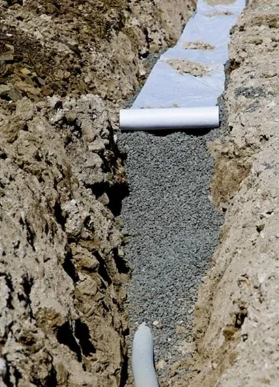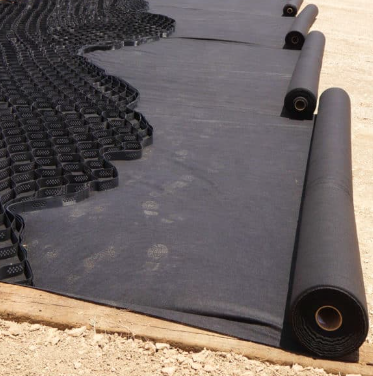- Understanding the Role of Geomembrane Liners in Waste Management
- Innovations in Geomembrane Liners for Water Management
- Geomembrane Liners: A Comprehensive Guide
- The Future of Geomembrane Liners in Civil Engineering
- Geomembrane Liners: Enhancing Landfill Stability
Manager:Alvin Wang
WhatsApp:+62 8983806051
Tel:+86 10-5797-1075
Email:steelwang@okorder.com
Address:3rd Floor, No.2 Building, No.1 Sanlihe Road
What is geotextile in concrete?
Geotextiles are versatile materials used widely in civil engineering and construction projects. Their applications include erosion control, reinforcement, filtration and separation among other uses. In concrete construction, geotextiles have a very significant role to play in terms of improving durability, stability and lifespan. This article discusses why geotextiles are important when it comes to concrete applications with specific focus on wholesale geotextile, polyester geotextiles, geotextile slope protection, geotextile slope stabilization and filament geotextile.

Understanding Wholesale Geotextile
Wholesale geotextile refers to large quantities of purchased bulk stock of geotextiles that are used for major construction needs. Mostly these types of supplies are usually obtained directly from the manufacturers or distributors so as to meet the demands of contractors, engineers and government agencies. Bulk purchasing enables construction projects to take advantage of economies of scale while making logistics easier.
For concrete applications purposes; wholesale geotextile can perform several functions; which includes acting as a separator between granular materials and subgrade soils thereby preventing the mixing and contamination between layers as well as being a medium for filtration so as not to clog up drainage systems beneath concretes structures enabling its long-term performance without affecting stability.
The Role of Polyester Geotextiles
Polyester fibers make up polyester geotextiles which are one type of synthetic fabrics. These synthetic fibers provide strength against chemical attack and sun exposure like UV radiations hence making them durable compared to other natural fiber materials. Reinforcement and soil stabilization account for majority application areas involving concrete construction where polyester getoxtiles are commonly utilized.
Concrete structures made from this type may have their tensile strengths improved whereas cracking risks can be minimized thus reducing any possibilities of structural failure. Furthermore, such structural materials can help prevent slopes from sliding down through reinforcement in soil retaining walls, slopes and embankments hence reducing the impact of soil erosion.
Geotextile Slope Protection
This is basically when geotextile materials are used to protect soil slopes against erosion, weathering and surface runoff. Unstable slopes in infrastructure projects such as buildings, roads or utilities pose a serious threat to their well-being.
Concrete applications require geotextile slope protection which is achieved by laying down mats or blankets on exposed slopes before pouring concrete. In addition, these textiles hold soil tight thereby preventing any displacement whenever there is heavy rain and other forms of environmental disturbances like wind. With time, vegetation starts growing on them thus holding it in place even more firmly.
Enhancing Stability with Geotextile Slope Stabilization
It is a method that involves reinforcing soil slopes so that they can be stable enough to resist erosion and landslides. This technique is essential in areas prone to slope failures, such as hillsides, embankments, and coastal cliffs.
Geotextile reinforcements are often used to support retaining walls, bridge abutments and other structures laid on or near hills in the course of concrete works. By integrating reinforcements made of getoxtiles into the matrix of soils engineers can increase stability of slopes while reducing displacements for improved safety performances.
The Advantages of Filament Geotextile
Continuous filament geotextiles also known as filament geotectiles are manufactured using continuous strands of synthetic fibers (polyester, polypropylene etc.). These filaments are usually extruded either by weaving them together or through needle-punching resulting into a strong fabric which has uniform properties throughout its length.
Filament geotextiles have several benefits when it comes to concrete applications. They have high tensile strength; they do not stretch too much which makes them good for reinforcement purposes and stabilization. Moreover, water passes through these products without hindrance but finer particles are retained because of their excellent filtration properties.

Conclusion:
Wholesale geotextile provides affordable alternatives for huge projects while polyester geotextiles have more tenacity and toughness. Moreover, Geotextile slope protection and stabilisation techniques mitigate the risks of erosion and landslides thereby improving the life span and performance of concrete structures. It also aids in enhancing stability and durability of construction works due to their special nature. If engineers as well as contractors can appreciate the different types and uses of geotextiles in concrete, they will be able optimise their use thus producing safer infrastructure that is more resilient."






